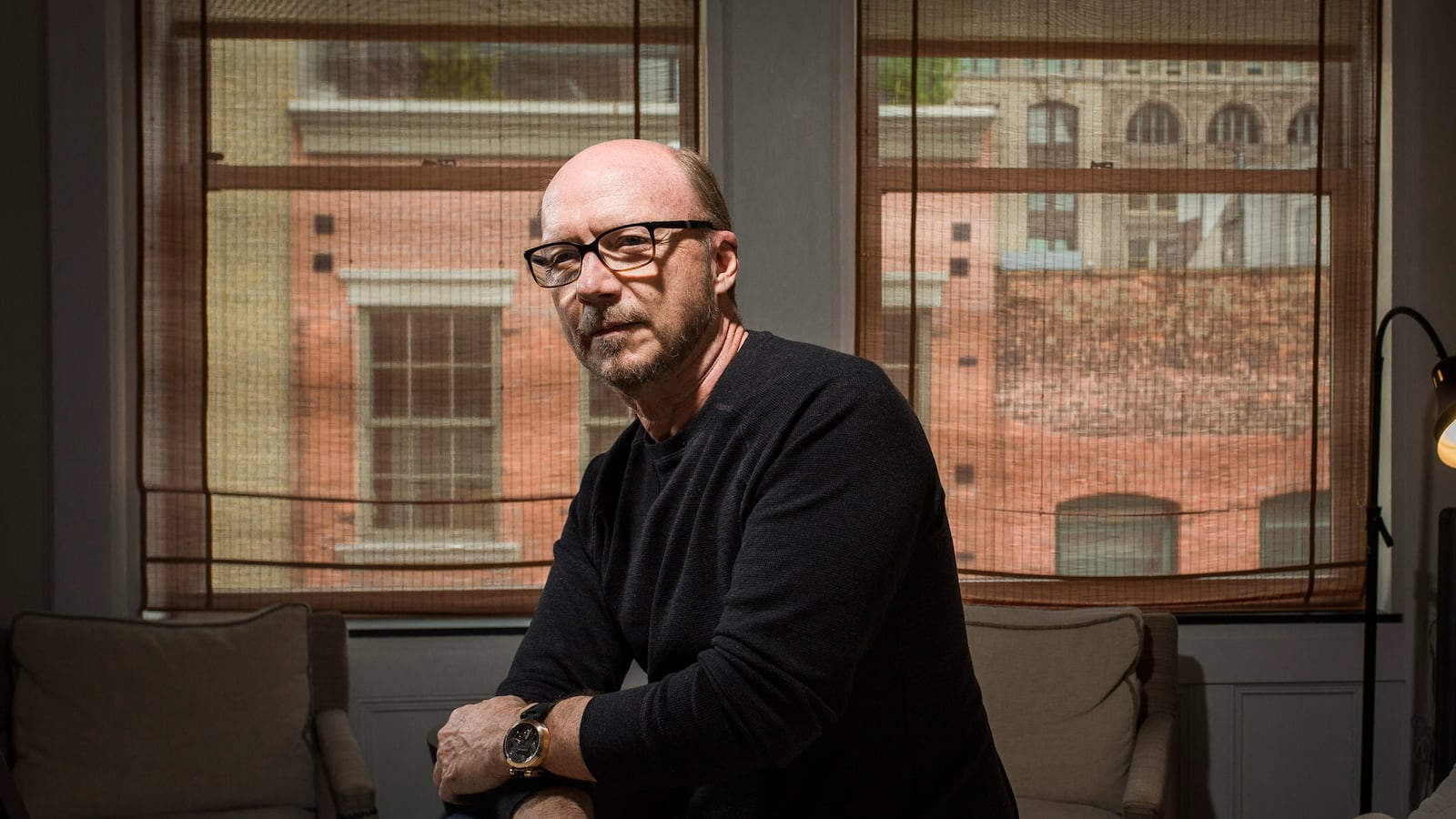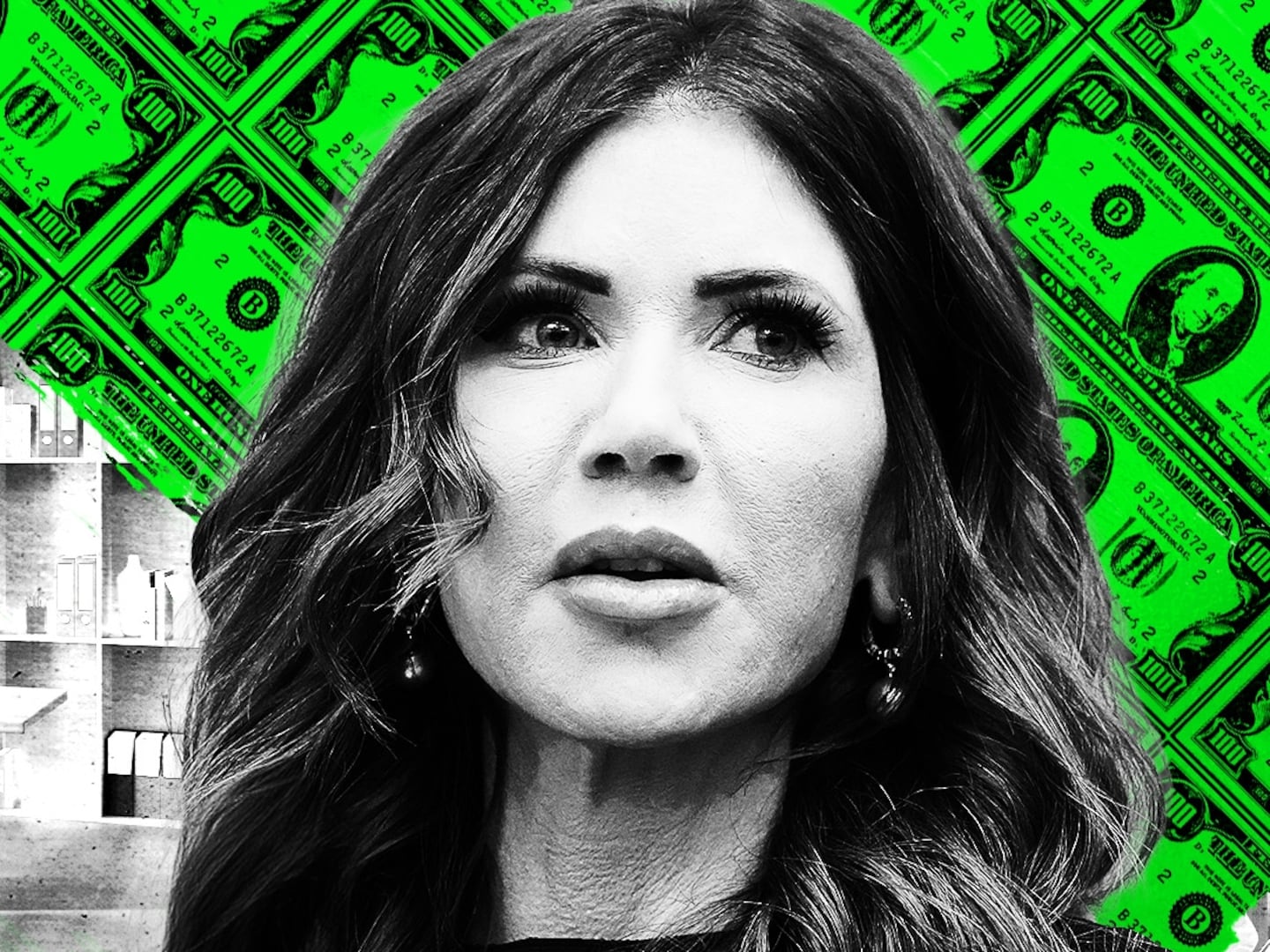Paul Haggis asks a lot of questions.
Some of them are rhetorical. Some are self-searching and provocative. Others are almost accusatory. It shouldn’t have been surprising, I suppose, that the Oscar-winning filmmaker’s responses to my questions would amount to veritable inquisitions in and of themselves. After all, the filmmaker has made a career out of raising questions. Heck, he may even be notorious for it.

With Crash, he forces us to grapple with questions about the legacy of urban disconnect, racial tension, and accountability for social injustice. (Not to mention the question: How much do we care about the Oscar race for Best Picture? It turns out we care a lot.) Million Dollar Baby asks us about guilt, grief, and mercy, and Flags of Our Father forces us to think about whether heroism is earned or manufactured, and whether that matters.
Off-screen, Haggis most famously questioned his own beliefs, parting ways with the Church of Scientology after 35 years in October 2009, subsequently denouncing it as a “cult,” and participating in an explosive 2011 New Yorker cover story on the controversial organization.
When we met in New York City this week, Haggis was promoting his latest film, Third Person, a Crash-like drama featuring three interconnected narratives about tortured romances. Boasting an impressive ensemble including Liam Neeson, Olivia Wilde, James Franco, Mila Kunis, Adrien Brody, and Kim Basinger, the film is already receiving a divisive response for the questions it asks. (Naturally.) You see, Third Person does ask several provocative questions about love and the relationships between these characters…but it never actually answers them.
Some critics love that. Others find it infuriating. And Paul Haggis is OK with that.
“This is not a date movie,” he says. “It’s a double date movie. You take three friends with you and you talk about it after.” In fact, he seems to be OK with his status as a divisive filmmaker, generally, candidly talking about Crash’s controversial 2004 Oscar win—“I certainly didn’t think we deserved to win Best Picture”—and his status as America’s most famous ex-Scientologist.
After an afternoon with Paul Haggis, regardless of your opinion on his filmography (which also includes Casino Royale, The Next Three Days, and In the Valley of Elah), you leave with an admiration for his refreshing candor. And also with a little bit of exhaustion—he really does ask a lot of questions.
Watching Liam Neeson’s character, a writer with complicated relationships, it’s hard not to wonder if he’s a bit autobiographical.
The whole movie is autobiographical. It all happened, just not the way it happened in the film. It’s all true, it just didn’t happy quite this way. But I put myself in every one of those characters and asked questions that were troubling me. There were lines of dialogue that were said to me that I gave to characters all over this film.
What’s a memorable one?
My ex-wife Deborah Rennard, that conversation on the phone at the end, when Kim Basinger says, “You really don’t feel a thing, do you?” And then at one point she said, “Don’t you try to get sympathy, Paul. I’m sure I’ll be reading this conversation in the next draft.” I thought, “Oh, that’s good!” And I wrote it down. [Laughs] I mean it’s awful to distance ourselves from our feelings that way. But that was a good line.
By that regard, is this your most personal film?
This is certainly the most personal film. They’re all personal. Crash was incredibly personal to me. So was In the Valley of Elah. There were things in The Next Three Days that were questions I was asking myself but couldn’t answer, like how far would you go for love? Can you believe in somebody who can’t even believe in themselves? But this is highly personal.
You’ve spoken before about how a time you were carjacked in L.A. specifically inspired you to write Crash. Is there a moment like that which viscerally inspired you to write Third Person?
Yeah. I was having an affair with an impossible woman.
Well, there you go.
I was impossibly in love with her and just couldn’t get through to her. She used to say to me, “You only truly want me to open to you. But it’s just a game. The moment I decide to be absolutely vulnerable to you, you will betray me.” I thought, “This woman has obvious trust issues—but what if she’s right?” Then I thought, “Ohh…that’s interesting.” When you can really look at your motivations—because we all justify our behavior, all the time. We all know we’re right and the other person’s crazy. But what if they’re right about us? So that’s what kicked it off.
Another point I was trying to get through to someone was that I’m not going to try to criticize this woman. I’m just going to trust her. She’s a completely untrustworthy woman and projects that onto me, but I’m just going to trust her. What happens then? Is that level of belief, is that amount of love transformative? Do characters and people rise to their better nature if you love them that much? Or what happens on the other side, like in the James Franco part of the story. What happens if you condemn them, and you say you really need to look at your behavior? That’s a really cruel mirror to hold up to somebody. Who’s really reflected in that mirror? You or them? And do you really get what you want in that? Is that the game of love, that we only want what we can’t have, and when we get it we don’t want it anymore? It’s a very cynical view. So I was exploring a very romantic view of love and also a very cynical view.
I was going to ask you what you thought this film says about love, but you seem to think it’s about the duality.
I loved American filmmakers when I was growing up. I didn’t get to film school or anything. I was a very bad student. I just devoured film, but there was a point in my teens when I started to run a little film society. 16 mm prints of great films that I hadn’t seen and knew nothing about. I remember the first time I saw the French wave and the Italians. I sat there in the projection booth and thought, “Oh my god, you could tell a story this way?” You could start it out as a murder mystery and then find out there is no answer to this and it’s going to end in a tennis game between mimes and then you’re going to have to find out for yourself what that means? That stuck with me for a long time. Because the answers weren’t as important as the questions the filmmakers were asking. I had to come up with my own answers. That was the kind of film that I wanted to make. It’s not a film that’s made often anymore, where you really trust the audience to come up with their own answers.
Well, there’s a lot of people who don’t like having to do that.
And a lot of people are uncomfortable doing it. I remember at the Tribeca Film Festival, I did a Q&A after the Third Person premiere. Someone put up their hand and asked me about the ending, with all the women and all that. I said to him, “What did it mean to you?” and he gave me a much better answer, more explicit and accurate than I could ever have given. I said, then, “So why did you ask me?” We want to be told that we’re right. It’s not good enough to figure it out for ourselves. That’s disconcerting. We should trust ourselves. This is not a date movie. It’s a double date movie. You take three friends with you and you talk about it after. What the hell was with the roses and the note? And did you see the painting early on? And it was in three different cities? What the heck?
Things like that get—and are getting—a divisive reaction.
The guys from Sony Classic Pictures were at that screening and loved it. And I told them after, “Listen, I need to change the ending, and I need your support in doing that.” And they allowed me to do it. I actually decided to take out some of the risks, because people were confused by the ending. So I took things out and after that screening I thought, I wanted to put them back in. They let me do that, because I wanted to have an emotional response at the ending.
How do you balance—or does it even matter—when you’re making a provocative a film like this or Crash, wanting to provoke and shielding against a divisive reaction?
You have to think about your heroes. I don’t want to compare myself to any of my heroes, I want to make that really clear. But you look at Vertigo. When it came out, critics savaged it. It made no money. Hitchcock got so depressed he pulled that out of circulation for almost 20 years. But we all agree now it’s his best film. It’s an amazing film! You can’t expect everyone to love your movies. You have to follow your own path, and make it. If they love it, great. If they hate it, that’s fine, too. It’s better than saying it’s nice. A lot of people hate my work. Thank god, more seem to love them. But there’s a vocal minority who hate Crash. But you check on Rotten Tomatoes and it’s still got 85 percent likes. (Ed. Note.: It’s actually 75 percent.)
What is it like to have a movie win Best Picture at the Oscars but still suffer the wrath of that vocal minority that hates it? Because they are a very vocal minority.
They’re very vocal! They felt so betrayed that Brokeback Mountain didn’t win the Oscar. I was like, guys, the Oscars are not that important. I mean they’re very lovely and I really like those statuettes. But a good film is a good film. Why do we have this race? Why do we have to knock one film down to build another film up? I certainly didn’t think we deserved to win Best Picture. There were five amazing pictures that year. There was Capote, and Good Night and Good Luck—a brilliant picture that year. And Munich. Not just Brokeback, they’re all brilliant. Any one of them deserved to win that year. So I think it’s childish. I think it’s a childish reaction. It’s people sulking and taking their toys home.
Did that reaction make it harder to make movies like Third Person, which, because of the interconnected stories, is getting compared to Crash?
No. It didn’t make it harder for me, at least. But, no. Because, like I said, if you check Rotten Tomatoes it still has 85 percent likes. If it was 85 percent hated, then, yes, that would make it harder.
Is it hard to make a movie like this, though?
Very hard. It’s very hard to get them financed. It’s not the kind of picture you take to studios. We didn’t even try. You just don’t know. Crash could’ve gone either way at the script stage. This can, too. This is a film that really needs to find an audience. It’s a business. We just have to make a range of pictures. We have to make movies for adults.
You worked on the pilot for Walker, Texas Ranger. When you hear all the Chuck Norris jokes now, do you take a special pride in helping to create Chuck Norris, the myth, the legend?
I don’t know how much credit I can take for Walker, Texas Ranger, because I only worked on it for three weeks. I re-wrote the pilot, and then my name was on it forever. I met Chuck once, said, “Hi, it’s nice to meet you,” and that was the entire relationship. I remember waking up 12 or 13 years ago in the middle of the night in a cold sweat. The sheets were drenched and I pictured my own tombstone. It said: “Paul Haggis, Creator: Walker, Texas Ranger.” I immediately realized I needed to do something to erase that legacy from my memory. [Laughs] So I immediately wrote Crash and Million Dollar Baby.
Chuck Norris is behind all of this, then!
Chuck is behind it all.
I was debating whether to bring up Chuck Norris or Scientology first, and I went with Chuck Norris. Was that the right move?
Oh, it’s more fun to talk about him that that. [Laughs]
Is it annoying that every time you sit down for one of these Scientology comes up?
Why would it be? It’s a big part of what defines me, isn’t it?
But you don’t want that to be the thing on your tombstone either.
No. I don’t think so. I don’t want to be known as “The Anti-Scientology Guy.” I’ve made my point, and I don’t run from it. But it doesn’t define me as much as my work in movies, or my work in Haiti.
But has being “The Anti-Scientology Guy” changed your position in Hollywood?
It’s impossible to know these things. I did move from L.A. to New York for a reason, though. Not just for that, but because I wanted to be part of a community that wasn’t just one business. I wanted to meet people who had different and fascinating jobs and interests. In L.A., you’re either in the film business or in weaponry. Which I guess is the same business. [Laughs] But, yes, I suppose Scientology has more of a foothold there than it does here. They can’t go through my trash here, for example.
No, there’s plenty of other people doing that here.
They’re not looking for specific pieces of paper, though.
Touché. Well, here you are now in New York. How has making movies changed since when you were doing Million Dollar Baby and Crash a decade ago?
It’s harder and harder all the time to make adult dramas. But any writer-director will tell you that. You need to put bigger and bigger stars in them because you need to sell the movie to foreign buyers in order to finance them, because you can’t get them financed by studios. So you could actually make a big movie with studios with smaller names, for like $200 million, and you can’t make a smaller movie for $10 or $20 million with big names. I was really blessed to get some really famous people in this movie who really stepped up and did great performances and were right for their roles. But it’s a struggle.
There’s so much being made today of the Death of the Movie Star. That “movie stars,” in the conventional sense, don’t hold box-office cachet anymore. It’s the franchises and the brand names that are the stars.
It’s easy for us to try and draw lessons from the obvious. But we have to remember it’s the obvious. These movies are often comic book movies and have already a great following. They’re characters that you love and I love. And they’re archetypes. It’s easier to play an archetype than a human being, so you can swap out actors and it’s not important. But at the same time, you need a good story. And the best-selling of these are the ones who do good stories. And they’re great stories. You need to care why someone is running and jumping. You need to care that they get to the other side of the chasm, that they don’t fall and go splat. But, yeah, I think in the big studio movies, it’s less and less important who you put in it as long as it’s still a great thrill ride. That’s what they want, a ride. Third Person is an emotional thrill ride. [Laughs]
The commentary is a bit fickle, too. Tom Cruise or Will Smith makes a movie that bombs, and the movie star is dead. But Liam Neeson does a string of well-performing films in a row, and he’s suddenly bringing back the movie star.
Liam Neeson is just as fine an actor today as he was before Taken. I remember trying to cast him in a movie a year before Taken, and they were unsure about him. And then Taken came out, and they were like, “Can you get Liam Neeson!?” Like, what? Are you crazy? Liam Neeson wasn’t a great actor last week, but this week he is? It’s genre. Some genres are always going to do better at the box office. It’s escapism.






